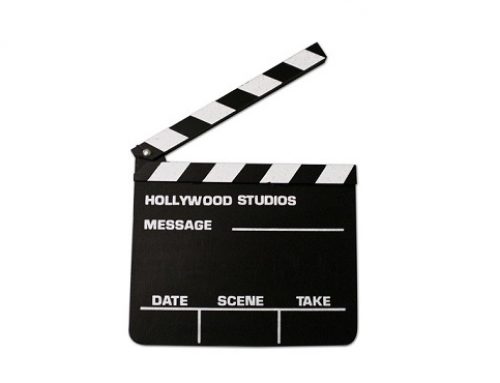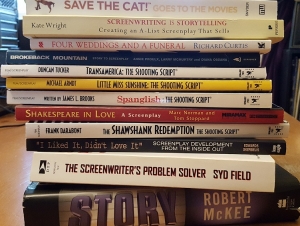by Renée J. Lukas
It’s the bane of every writer’s existence: “Thank you for your submission. Unfortunately, it doesn’t meet our needs at this time.”
 It’s so vague! You wonder, what exactly didn’t meet their needs? Why don’t they say: “Your main character isn’t likeable,” or “You really use the word ‘really’ too much”?
It’s so vague! You wonder, what exactly didn’t meet their needs? Why don’t they say: “Your main character isn’t likeable,” or “You really use the word ‘really’ too much”?
They can’t be specific because they simply don’t have time. If you’ve read some of my other posts, you already know that literary agents and publishers receive hundreds of manuscripts a week. If they gave you a personal critique, you’d wonder if they had time for anything else.
So what does it really mean, “doesn’t meet our needs”? Here’s the bad news: It can mean a million different things. Now the good news: It may not be a reason that has anything to do with your ability as a writer. Feel better? We writers can be an insecure bunch, so it’s good to know that some of the reasons for rejection have nothing to do with your talent. (One caveat: sometimes it means exactly that, and writing just isn’t your thing.)
I once read that a famous writer, I think it was Stephen King, had saved enough rejection letters to wallpaper a bathroom. I used to save mine, as a sign that I was slogging it out and forging ahead. Then I decided not to hold on to all the negative juju those letters conjured. So I stopped saving them and started throwing them in the trash.
My Rejection Story
Years ago, I’d sent a manuscript to a publisher of lesbian fiction. I got the standard rejection, but also a call from the editorial director. She wanted me to know that my writing was really good, but they didn’t want any references to alcohol in the story! It may sound crazy now, but this was during a time when many LGBT people were being stereotyped as alcoholics, meeting in bars, etc. They wanted stories that did away with this stigma. Since the use of alcohol played a role in the central plot of my story, I couldn’t exactly take it out and have the same novel. So there I was on the phone with the editorial director, who was a legend in this genre, and I couldn’t think of anything to say to her to salvage the situation. It was heartbreaking for me to come so close, but no cigar.
So you see, whatever you write, once you send it out, will no longer be in the vacuum of your mind, but subject to the political and social atmosphere of the time. Even though you may think politics shouldn’t affect art, it may play a role in whether or not your work is accepted.
Years later, that same publisher accepted a totally different novel of mine, and the rest is history.
How Do You Know if Your Writing Needs Work?
Writing is subjective, of course. What one reader may love, another won’t. Just go on Goodreads.com and you’ll see that some readers really love my work, while others. . .not as much. There’s no real consensus for most authors’ works, except for maybe J.K. Rowling. Yet even she deals with haters. Can you imagine? Some people out there actually wouldn’t want to attend Hogwarts, with all those beautiful desserts the kids get to eat. . .
Anyway, if you receive a rejection letter, don’t give up with just one! Send your manuscript to as many places as you can find. If you’re getting constant rejections with the same work, maybe it’s time to try another story that might fare better. If all you get are constant rejections, it may be time to have an objective reader, if you didn’t already, take a look and see if your writing is really where you think it is. For example, if you keep getting the same notes about strengthening your dialogue, that’s a red flag that your dialogue needs work.
How to Use Feedback
You’ve had several readers look at your work, and you’ve received plenty of feedback. One loves the protagonist, the other doesn’t find her likeable enough. How do you know which notes to address and which ones to ignore?
Go with your gut. If you believe in an aspect of the story, don’t change it. Not all feedback is meant to be addressed. But open your mind, and if you see value in the notes you receive, if you’re truly honest with yourself, you’ll find room to improve. Since every story is different, you have to take what you think will make your work better, and ignore what you think won’t.
Also, sometimes notes are ambiguous, and you have to figure out what is really meant. For example, “the story isn’t well-defined.” This can be a tough one, because it depends on how YOU define it! This note could mean narrow your focus–maybe your plot and characters are all over the place. Or, it could mean that not enough is going on. Or still, it could mean that your tone is hard to pin down–you haven’t decided if it’s a comedy, dark comedy or a drama.
Helpful Writing Tools
It’s always a good idea to invest in your writing career. I don’t mean throw lots of money at bogus gurus who promise to get you an agent or publisher. But take a writing class. You can even take classes online if time is an issue. Read books and websites about the craft. You may find out that your opening page doesn’t grab the reader as you once thought. You can also learn techniques to hook a reader and not let them go until the last page. I’ll bet you can take any one of your scenes right now, as written, and change it in a way that packs much more of a punch. In upcoming blogs, I’ll be sharing some of these techniques that can elevate your writing to a whole new level.
So keep checking back, and happy writing!




